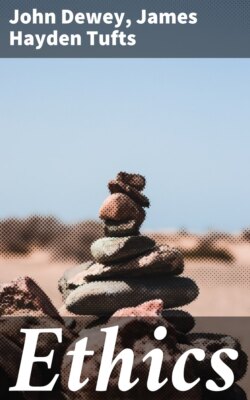Читать книгу Ethics - Джон Дьюи - Страница 37
На сайте Литреса книга снята с продажи.
FOOTNOTES:
Оглавление[23] W. G. Sumner, Folkways.
[24] Sumner, Folkways, p. 6.
[25] Ibid., p. 11.
[26] Bagehot, Physics and Politics, p. 103.
[27] Eastman, Indian Boyhood, p. 31.
[28] Hobhouse, Morals in Evolution, Part I., p. 16. Hume pointed out this twofold basis of approval.
[29] Seebohm, The Tribal System of Wales, p. 59.
[30] The account is based on Spencer and Gillen, The Native Tribes of Central Australia, chs. vii.-ix.
[31] Maine's Early Law and Custom, p. 264.
[32] Welsh Triads, cited by Seebohm, op. cit., p. 72.
[33] Post, Grundlagen des Rechts, pp. 45 ff.
[34] Deuteronomy 21:1–9; Numbers 35:33, 34.
[35] Genesis 4:10–12; Job 16:18.
[36] On the subject of early justice Westermarck, The Origin and Development of Moral Ideas, ch. vii. ff.; Hobhouse, Morals in Evolution, Part I., ch. ii.; Pollock and Maitland, History of English Law.
[37] Leviticus, ch. xii.
[38] "The Influence of Magic on Social Relationships" in Sociological Papers, II., 1905. Cf. also Morgan, House-life.
[39] Genesis 19:8; Judges 19:23, 24.
[40] Psalms 146:9; Deuteronomy 24:14–22.
[41] Gellius, in Westermarck, op. cit., p. 155.
[42] Westermarck regards this as one of the fundamental elements in the beginnings of morality.
